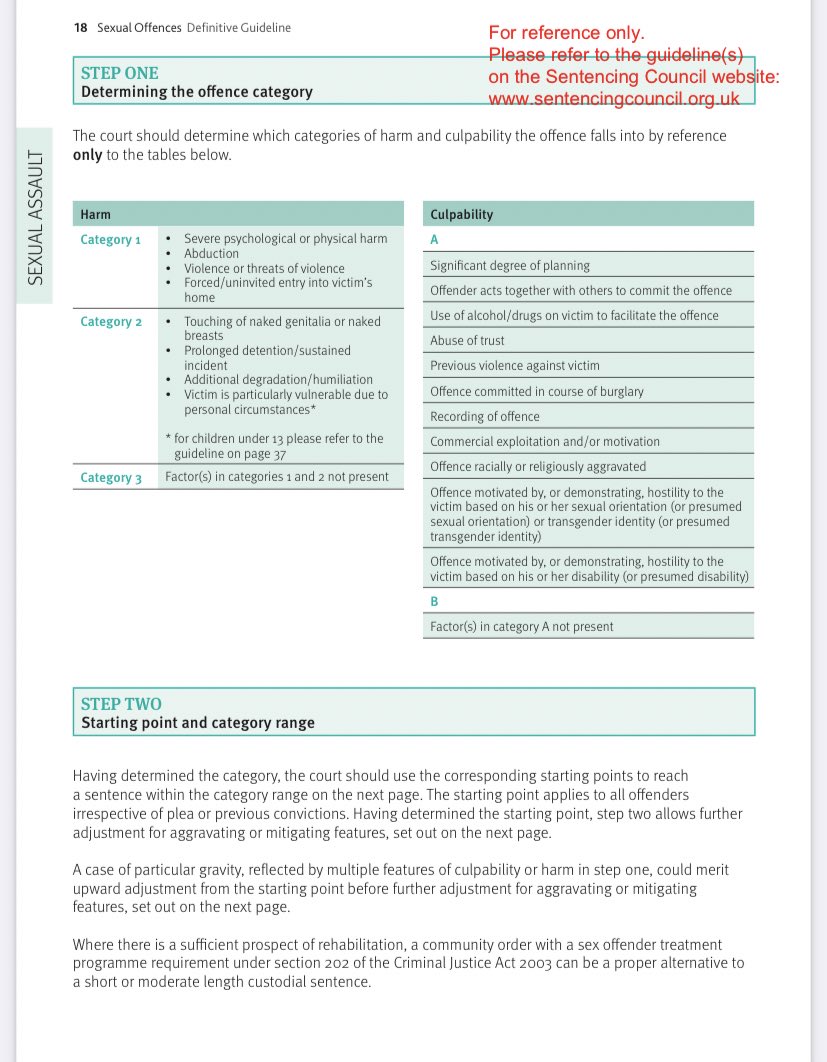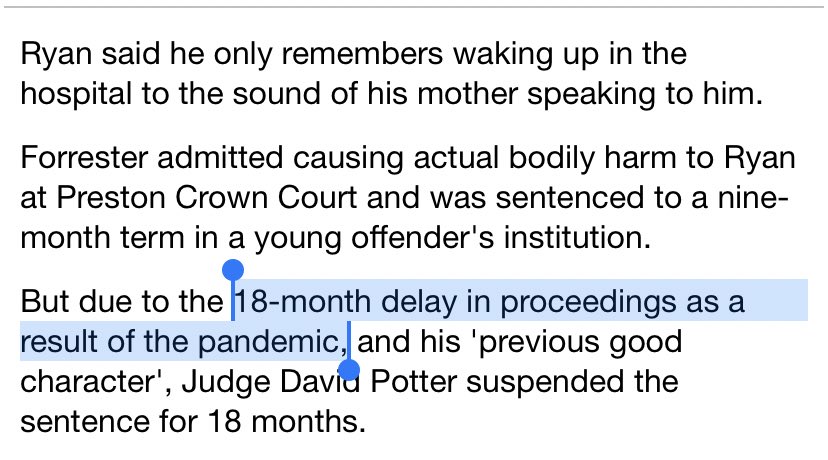
Oh boy. It’s been a while since we’ve had one of these.
Presumably this is in honour of the paperback publication of #FakeLaw next week, 27 May 2021.
Let’s look at why this trash from the Mail is as misleading as it is dangerous.
[THREAD]
Presumably this is in honour of the paperback publication of #FakeLaw next week, 27 May 2021.
Let’s look at why this trash from the Mail is as misleading as it is dangerous.
[THREAD]

1. Readers are invited to conclude that £66,000 (not £70k) is too much to spend on this very serious case, in which a child was killed. A “vast sum of taxpayers’ money”, we’re told.
And there’s a quote from this chap.
(We’ll come back to his searing legal analysis, don’t worry)
And there’s a quote from this chap.
(We’ll come back to his searing legal analysis, don’t worry)

2. But the journalist has not bothered to tell you any of the context that you would need to even *begin* to assess whether that cost is too high, too low, or about right for a criminal trial like this. Such as...
3. How much of that figure includes VAT, which goes to the Treasury? What work was involved? How many pages of evidence were there to read? How many hours, days, months went into this extremely serious case where the defendant was facing a life sentence for murder?
4. £66k sounds like a lot out of context. But here’s the first thing you’re not told: that figure includes the costs of many psychiatric experts (whose hourly rates are way in excess of what legal aid pays to lawyers, btw). It’s not money that all goes to solicitors & barristers.
5. The journalist doesn’t tell us how much went to the lawyers, but in any case the figures are gross, not net. Barristers are self-employed with staff to pay, business costs, rent, insurance, tax etc. When that is broken down, what is the actual *profit* for these professionals?
6. What is the hourly rate? How does that compare to the hourly rate of other professionals? What does this journalist suggest *should* be paid to the most highly experienced professionals in their fields - the most experienced QCs - dealing with the most serious criminal cases?
7. Because this is is what it boils down to: if you are going to run a “news” story decrying the cost of legal aid, you should be able to give full context to show why it’s too much, and what sum would have been reasonable.
Of course, The Mail doesn’t.
Of course, The Mail doesn’t.
8. Instead, the Mail calls on the expertise of this man, who offers the considered opinion that “there was never any question of Skana’s guilt”.
Which is an odd interpretation of a case where the prosecution charged murder and the defendant WAS ACQUITTED.
Which is an odd interpretation of a case where the prosecution charged murder and the defendant WAS ACQUITTED.

9. Yep. That’s right. This “open and shut case” was in fact one of the most factually and legally complex in the criminal law book.
I wrote about it at the time. The psychiatric expert evidence took so many twists and turns that the prosecution had to drop the murder charge:
I wrote about it at the time. The psychiatric expert evidence took so many twists and turns that the prosecution had to drop the murder charge:
https://twitter.com/barristersecret/status/1334900002339086338
10. If you don’t have time to read the legal ins and outs, all you need to know is that, whatever this case was, it was *not* “open and shut”. Nobody with an ounce of intelligence could ever think that. It’s like describing open heart surgery as “a simple outpatient procedure”.
11. And this man - this intellectual colossus - is the primary source that the journalist cites in support of her angle. You might as well quote a wombat.
12. Far from “epitomising everything that is wrong with the legal aid system”, this case shows why legal aid is essential.
Without legal aid this severely ill woman could never have had a fair trial. She would almost certainly have been wrongly convicted of murder.
Without legal aid this severely ill woman could never have had a fair trial. She would almost certainly have been wrongly convicted of murder.

13. And back to the “vast sum of legal aid” - the truth is that legal aid fees are fixed by the government far below market rates.
On private rates, top defence barristers would cost millions.
Don’t believe me, Mail? Ask your fellow Fleet Street pals.
On private rates, top defence barristers would cost millions.
Don’t believe me, Mail? Ask your fellow Fleet Street pals.
14. The Sun’s publisher News Corp was happy to pay £60m in private fees to defend five journalists accused of phone hacking.
That’s an average of £12m each, and nobody was accused of murder.
That’s an average of £12m each, and nobody was accused of murder.

15. But when it comes to the public, tabloid journalists think that if you are accused of a crime you don’t deserve to have the same right to a defence as they do.
The hypocrisy would be jaw-dropping if it weren’t so depressingly familiar.
The hypocrisy would be jaw-dropping if it weren’t so depressingly familiar.
16. The subtext of this whole article is: this is a bad person, and it is wrong for taxpayer money to be spent on ensuring that bad people are fairly convicted.
Spoiler: It’s not. It is the hallmark of a civilised society
Spoiler: It’s not. It is the hallmark of a civilised society
17. Here’s why: because everybody - you, me, the people we fear and hate most - has the right to a defence if accused of a crime.
Everybody is entitled to a fair trial under the rule of law.
And here’s a thing: sometimes accused people are innocent. And are found not guilty.
Everybody is entitled to a fair trial under the rule of law.
And here’s a thing: sometimes accused people are innocent. And are found not guilty.
18. But even when defendants are guilty, it is just as important that they are properly legally advised, fairly tried and fairly sentenced.
That’s how we do justice in this country.
And I’m proud of it, even if the Mail isn’t.
That’s how we do justice in this country.
And I’m proud of it, even if the Mail isn’t.
19. That’s why legal aid matters. Of course the amount paid from the public purse has to be reasonable. The average take-home pay of a criminal barrister is £27k pa. A solicitor is less. The huge headline sums, without context, distort reality.
You are not being given the facts.
You are not being given the facts.
20. The reason you aren’t given any of this context for this headline is because that would ruin the story. It would be, when all is broken down, wholly unremarkable.
Instead, the reader is invited to resent the mere principle of an accused person having legal representation.
Instead, the reader is invited to resent the mere principle of an accused person having legal representation.
21. This attitude is ignorant, exploitative and dangerous. It is also prevalent. This thread is copied from responses to near-identical stories from recent years. I make no apology for this - as long as they copy and paste trash #FakeLaw, I’ll copy and paste my rebuttals.
22. I don’t care if I am stuck on repeat. These #LegalAidLies have been allowed to flourish unchecked for years. Stories like these are like fake health cure articles - they cause irreparable damage not only to public understanding, but to people’s lives. They must be challenged.
23. The lies you are told about legal aid - what it’s for, what it costs, why we need it - are the reason governments have been able to remove legal aid from the most vulnerable in society without any political consequence.
Don’t let them lie to you.
Don’t let them lie to you.
24. And the inevitable plug. #LegalAidLies is a whole chapter. Out in paperback next week, pre-order now.
It’s because of our unfamiliarity with the legal system that they lie to us with impunity.
Don’t let them.
#FakeLaw
amazon.co.uk/Fake-Law-Truth…
It’s because of our unfamiliarity with the legal system that they lie to us with impunity.
Don’t let them.
#FakeLaw
amazon.co.uk/Fake-Law-Truth…
• • •
Missing some Tweet in this thread? You can try to
force a refresh















